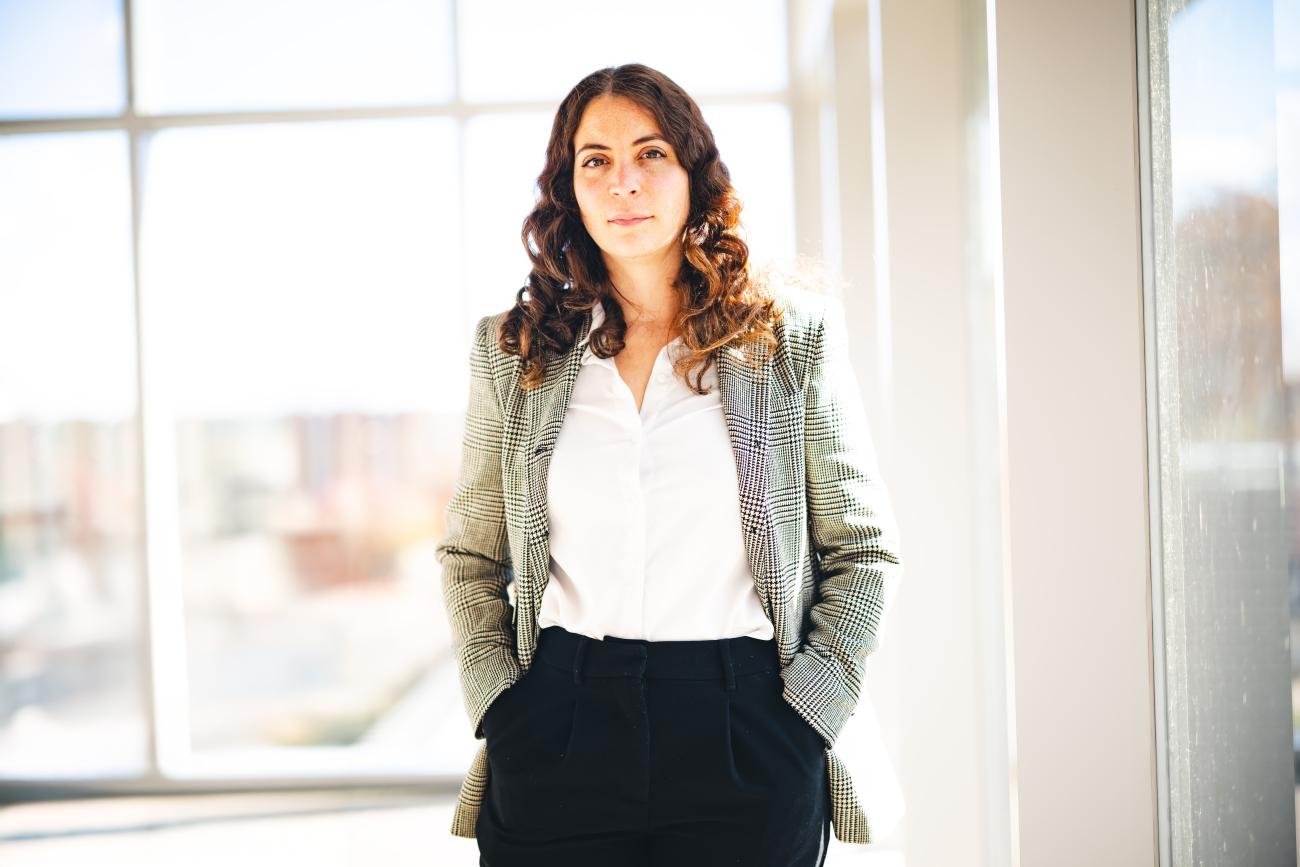The Power of Persistence: How Small States Win Big at the UN
Sabrina Arias's research reveals that diplomacy by small states shapes international policymaking.
In the corridors of the United Nations, conventional wisdom suggests that power flows from military strength and economic heft. Yet Sabrina Arias has uncovered a different story, one where small countries punch far above their weight and where individual diplomats matter as much as the GDP of the nations they represent.
Arias’ book project, Diplomatic Giants: How Small States and Powerful Ambassadors Shape International Organization Policymaking, challenges fundamental assumptions about how influence operates in international organizations. Through painstaking data collection and interviews with diplomats from more than 50 countries, she demonstrates that small states wield surprising influence in the early stages of policymaking when agendas are set and coalitions are built, cultivating a form of influence Arias calls “diplomatic capital.”.
The research required extraordinary persistence. During the COVID-19 pandemic, Arias set out to track every UN ambassador and deputy from 1946 to 2018, ultimately compiling a database of 21,159 entries. Her sources were the UN's "Blue Books," annual directories listing diplomatic staff at each country's New York mission. When archives remained closed, she had volumes delivered through interlibrary loan and manually constructed the dataset, entry by entry.
"I thought about using AI for this task, but because these are being published every year, the formatting changes differently” says Arias, assistant professor of international relations. “Some years the delegates will include their middle names, and some years they won't. You really need a human eye to see the two are actually the same person."
The resulting dataset revealed a striking pattern. Small states maintain significantly longer average tenures for their ambassadors compared to large states. Arias explains that while diplomats from countries such as Germany or the United States typically rotate every two to four years, ambassadors from smaller nations often serve for decades. Liechtenstein's ambassador, for instance, has represented his country at the UN for more than 20 years, she notes.
Why Experience Matters
Arias proposes three mechanisms through which diplomatic experience translates into diplomatic capital— developing social networks, gaining substantive expertise over issues, and attaining mastery over institutional rules. These advantages become particularly important in the complex, highly formalized environment of the UN General Assembly, where proposals must navigate intricate procedures and shepherd through multiple stages before reaching debate. "Several diplomats I interviewed weren't even familiar with the procedure," Arias adds. "It takes a lot of know-how to understand how to do it."
The difference in representation is striking. Nauru, a tiny Pacific Island nation, maintains only one ambassador and a secretary at the UN. The United States, by contrast, fields a mission of approximately 200 staff members. Yet surprisingly, the larger mission's frequent personnel rotations can undermine institutional memory, while smaller states develop deep expertise through continuity. Arias's research finds that diplomats are most effective if their tenure is five to eight years. Performance begins to decline if they stary longer — a finding that aligns with research on organizational behavior in other contexts.
Testing the Theory
To establish causation, Arias examined cases where ambassadors died unexpectedly during their terms. These tragic events provided a natural experiment: when experienced diplomats were suddenly replaced by novices, their countries' engagement in agenda-setting measurably declined. The finding strongly supports her theory that individual diplomatic skill drives small-state influence, rather than structural factors alone.
In her book, Arias extends this analysis by collecting biographical data on more than 1,200 Permanent Representatives from 1995 to 2005, the first cross-national dataset of diplomatic biographical information. Drawing on theories of leader effectiveness and diplomatic practice, she examines how education, employment history, and social networks moderate the impact of experience.
"What this shows is that maybe this is a sort of misunderstanding and that small countries are doing more at these institutions than outsiders perceive."

To test whether her findings generalize beyond the UN, Arias conducted an external validity probe at the General Agreement on Tariffs and Trade (GATT) and World Trade Organization (WTO). She created comparable measures of diplomat tenure for all GATT/WTO member states from 1983 to 2009 and assembled an original dataset of proposed agenda items from 1995 to 2009. The results confirmed that diplomatic capital plays a similar role across different types of international organizations.
Rethinking Power and Influence
Arias argues that previous scholars have overestimated the influence of powerful states by focusing on late-stage activities like voting on final resolutions. At these visible moments, larger states can readily deploy economic or military leverage. But in the early stages of policymaking, where visibility is lower, it becomes much harder to translate material resources into influence.
Arias points to a recent example as illustration. Several years ago, Costa Rica successfully championed a General Assembly measure recognizing the right to a clean environment. Despite opposition from China and other major powers, the resolution passed—and has already been cited in legal cases from Thailand to the United States, where mining communities have used it as precedent in environmental lawsuits.
"We end up in these situations where even though major powers aren't ultimately super happy with the outcome," Arias observes, "maybe they recognize that they need to give and take a little bit to keep everybody participating in the system."
If diplomatic continuity provides such advantages, why don't larger states simply extend their ambassadors' tenures? Arias identifies several countervailing pressures. Rotation serves recruitment and morale within large foreign services, ensuring that diplomats aren't trapped in undesirable posts. Fresh perspectives can also be valuable. However, these considerations are outweighed by necessity for smaller states. They must deploy their best diplomats strategically and keep them in place due to limited personnel in their foreign ministries, she says.
Implications for Global Governance
Arias' findings carry important implications for debates about the future of international institutions. At a time when many countries express dissatisfaction with global governance and question whether their voices are heard, her research suggests that influence may be more widely distributed than commonly perceived.
"What this shows is that maybe this is a sort of misunderstanding and that small countries are doing more at these institutions than outsiders perceive," she says.
More fundamentally, her work demonstrates that people really matter in international politics—experience, expertise, social skills.
“We can't learn everything we need to know by just thinking about GDPs and militaries. We have to think about these individuals as being effective," says Arias.
For small states working on issues like climate change, the research offers a roadmap: invest in diplomatic continuity, build social networks, and master institutional procedures. Persistence and expertise can trump raw power in the complex structures of international organizations, at least in the crucial early stages where agendas are set and possibilities are defined.
In revealing the outsized influence of diplomatic giants from small states, Arias has uncovered a more nuanced and hopeful picture of international politics—one where skill, experience, and social capital can level an uneven playing field, and where the patient work of individual diplomats shapes the course of global governance.

